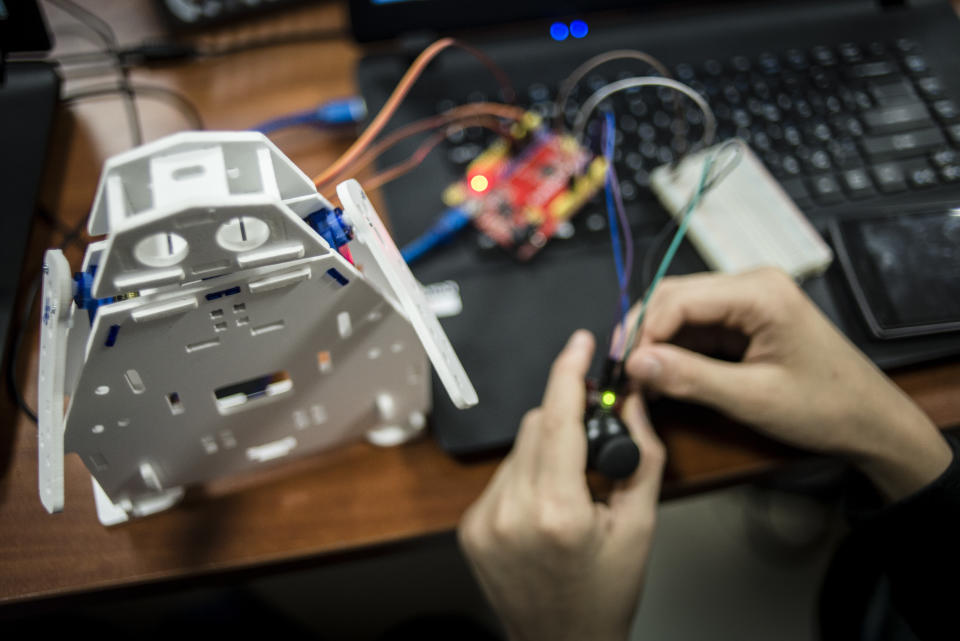US robots could increase migration of unemployed Africans, experts say

Automation in US factories could increase global migration by wiping out employment opportunities in Africa, according to a development industry expert.
Sara Pantuliano, acting executive director of the Overseas Development Institute (ODI), told the Davos summit that unemployed Africans would be more likely to leave the continent if local manufacturing jobs dried up in the face of renewed US competition.
She highlighted recent ODI research which suggested operating robots in US factories could become cheaper than hiring Kenyan workers by 2033.
The cost of creating and using robots is expected to fall in wealthier countries, and could reach a tipping point where it becomes more efficient than using cheap labour in poorer countries.
READ MORE: EU leaders insist ‘Europe works’ despite huge fears for its future
Pantuliano said at an event on global migration at the Switzerland summit that some projections showed Africa would have 830 million young people by 2050.
“In the space of 15 years, operating a robot in the US is going to be cheaper than having labour in Africa in the manufacturing sector.
“That will increase the pressure on the ability of young people to remain in employment in Africa — unless we can help them to prepare for the work of tomorrow.”
READ MORE: Davos founder warns of battle between robots and humankind
UN Population Fund executive director Natalia Kanem said at the same event that the number of African young people migrating abroad had been “distorted”, as they were proportionately fewer than the numbers from Asia and Latin America.
She also called it a “fallacy” to suggest high population growth was driving climate change.
“Far-reaching environmental catastrophes are not because of a villager cutting down trees in their backyard,” she told global business and political leaders at the annual conference in the Swiss alps.
“When we look at carbon emissions, the population growth factor is negligible in what’s driving climate changes.
“We need to become planners, and use population dynamics to understand how to invest in young people so we can in fact reap the demographic dividend.”
She said it was also crucial to equip migrants to assimilate into other countries, as otherwise “cultural clashes can lead to societal disturbances” and hostility rather than new arrivals being welcomed.
Figures presented by the World Economic Forum (WEF), which runs the Davos event, suggest more than half of global population growth between now and 2050 will occur in Africa.

 Yahoo Finance
Yahoo Finance 